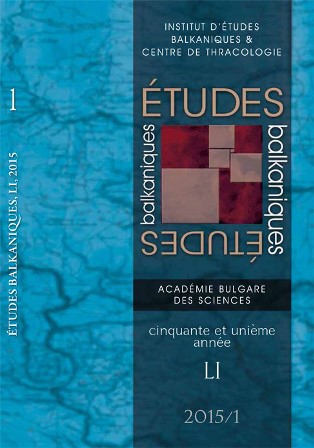“GREEK CULTURE” OR “ORTHODOX CULTURE IN GREEK”? BULGARIAN-GREEK RELATIONS PRIOR TO THE “CHURCH STRUGGLE”
“GREEK CULTURE” OR “ORTHODOX CULTURE IN GREEK”? BULGARIAN-GREEK RELATIONS PRIOR TO THE “CHURCH STRUGGLE”
Author(s): Raymond DetrezSubject(s): Cultural history
Published by: Институт за балканистика с Център по тракология - Българска академия на науките
Keywords: Bulgaria; Greece; Orthodox Christianity; language; literature
Summary/Abstract: The concept “national culture” in the sense of a culture with obvious national features is relevant only from the nineteenth century onwards, when intellectuals intentionally started creating works displaying distinctive national features. Searching for such in the pre-modern era is futile, since at that time national awareness was absent. Typical of pre-national consciousness is allegiance to a religious community. As Tăpkova-Zaimova and Stojčeva pointed out, in the Balkans the distinction between “one’s own literature” and “foreign literature” is not valid any more from the fifteenth century on, “when the idea of a common Orthodox unity of all Christians had emerged and materialized”. Studying Bulgarian-Greek literary relations in the pre-national era in terms of national cultures in contact is in fact anachronistic. As Giuseppe Dell’Agata noticed, we do not deal with a “Greek culture” as opposed to that of other Balkan ethnic groups, but with (Orthodox) “culture in the Greek language”. In our contribution we provide additional arguments supporting this thesis, paying attention to the perspectives it opens for further research.
Journal: Études balkaniques
- Issue Year: 2015
- Issue No: 1
- Page Range: 59-69
- Page Count: 11
- Content File-PDF

